Neuroscience
-
 Neuroscience
NeuroscienceGirls may require more mutations than boys to develop autism
New results may help explain why more males wind up with autism.
-
 Neuroscience
NeuroscienceBrain’s fact-checker located
A bit of brain tissue near the top of the head may be the body’s fact-checker. Called the supplementary motor cortex, this brain region monitors the body’s action and sends an alert when a mistake is made.
-
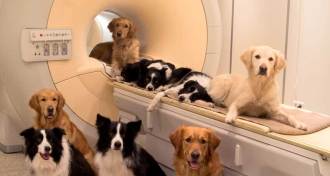 Neuroscience
NeuroscienceLike people, dogs have brain areas that respond to voices
MRI study may help explain how pups understand human communication.
-
 Psychology
PsychologyStress hormone rise linked to less risky financial decisions
People given cortisol chose safer options, suggesting inherent risk aversion as an overlooked variable in financial crises.
-
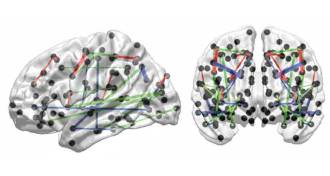 Neuroscience
NeuroscienceWhite matter scaffold offers new view of the brain
A new neural map of white matter connections may explain why some injuries are worse than others.
-
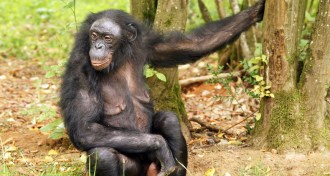 Animals
AnimalsBonobos feel the beat
Some animals, like cockatoos and bonobos, are able to move to the groove. Studying animals that keep the beat might tell us whether musical rhythm is really widespread.
-
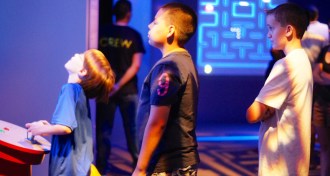 Neuroscience
NeuroscienceVideo games could boost reading skills in dyslexia
People with dyslexia, a developmental reading disorder, have a harder time switching from visual cues to auditory ones, but the constant shifts in video games may help improve the how quickly individuals perceive the change.
-
 Neuroscience
NeuroscienceGene adds wrinkle to brain development
Mutations in the gene GPR56 results in misshapen folds in the brain tied to intellectual and language disabilities.
-
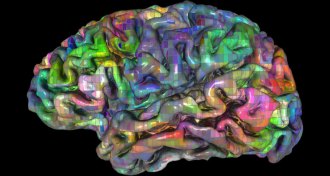 Neuroscience
NeuroscienceWays of seeing the brain inspire notions of how it works
As scientists have developed more sophisticated methods and ideas, their understanding of how the brain works has shifted too.
-
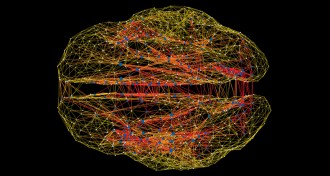 Neuroscience
NeuroscienceCataloging the connections
Though a complete map of the brain’s connections is many years away, the mathematical theory of networks can help fill in some of the blank spots.
-
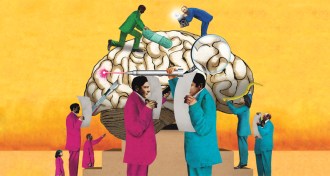 Neuroscience
NeuroscienceBrain shot
Deciphering how the brain’s circuitry produces thought and behavior is an ambitious and enticing goal on the scale of the Apollo Program or the Human Genome Project. But the neuroscientists involved in a new federal effort have many challenges ahead.
-
 Neuroscience
NeuroscienceDiuretic may treat autism, study in rodents suggests
Drug that lowers chloride levels in brain cells staves off symptoms in mice and rats.